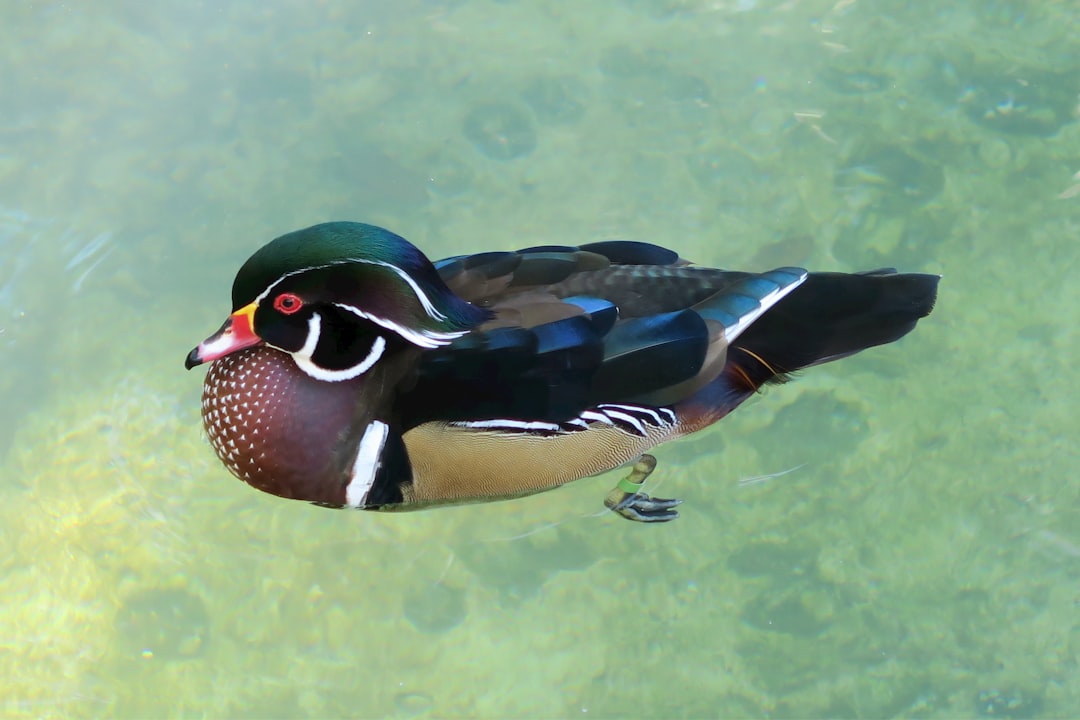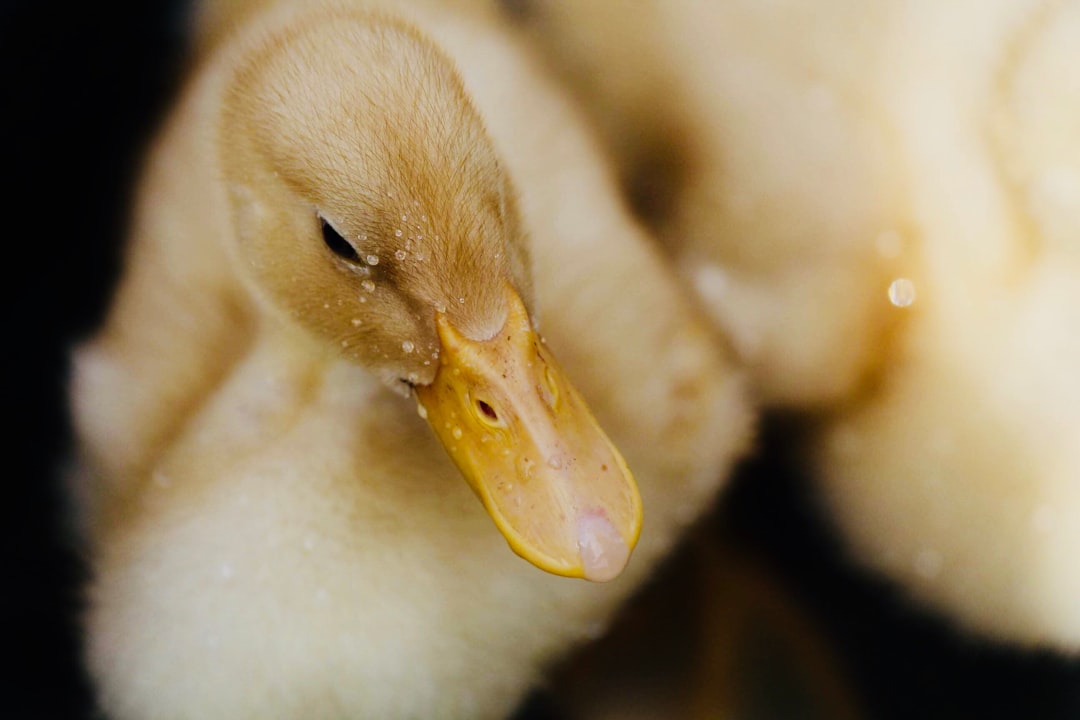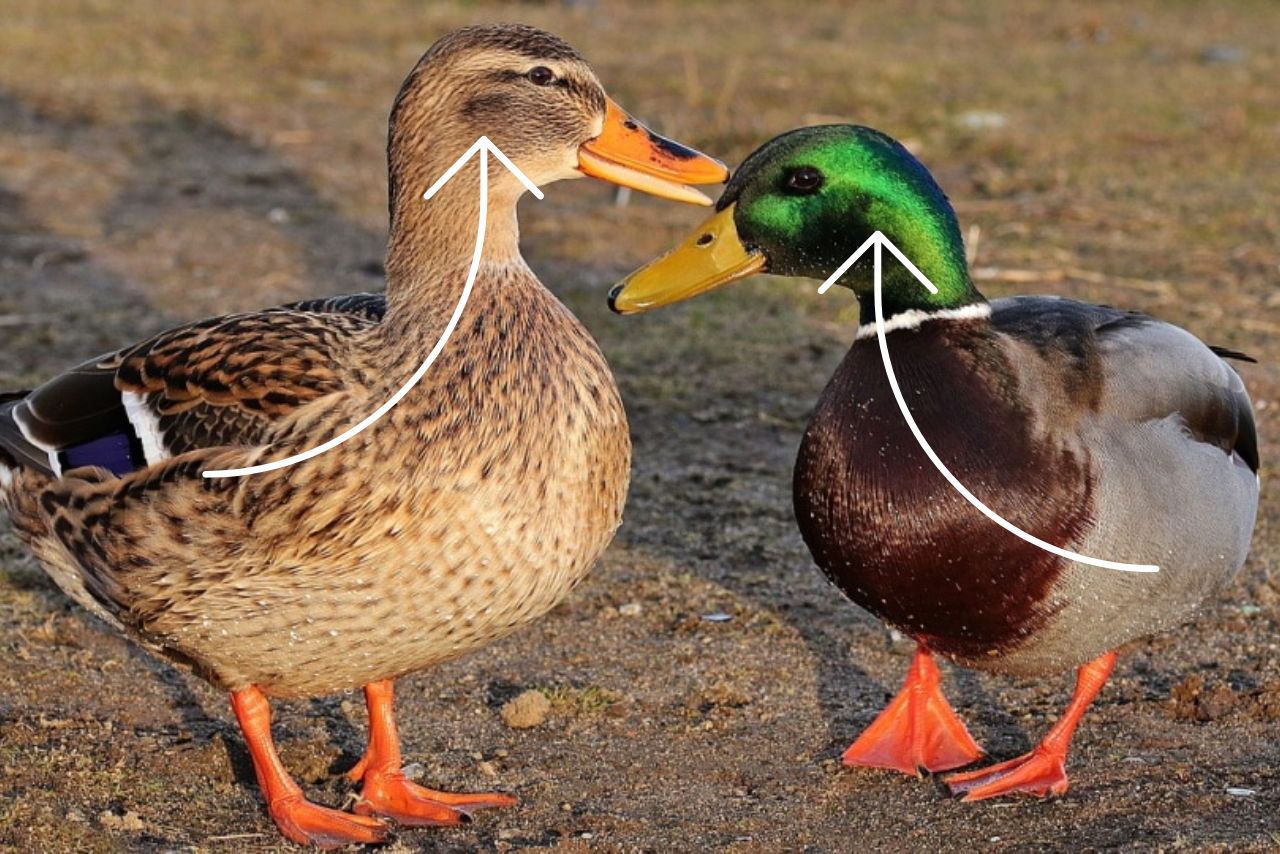Ducks are fascinating creatures that have captured the curiosity of humans for centuries. One of the most common questions people have about ducks is whether or not they have ears.
It may seem like a simple question, but the answer is more complex than you might think.
In this blog post, we will explore the anatomy of a duck’s ear, how it differs from the human ear, and how ducks use their ears to navigate their surroundings.
So, let’s dive in and learn more about the ears of these beloved waterfowl.
So, Do Ducks Have Ears? Yes, ducks have ears, but they are not like the ears we typically think of.
Unlike humans, ducks do not have external ears, but rather they have small openings on the sides of their heads that lead to their inner ear.
These ear openings are covered by feathers that protect them from water and other elements.
Additionally, ducks can rotate their heads up to 270 degrees, which helps them to locate sounds coming from different directions.
Overall, while ducks do have ears, their unique design and placement may not be immediately recognizable to humans.
Do Ducks Have Ears Yes Or No?
Yes, ducks do have ears, and they are an essential tool for their survival. Ducks use their ears to detect predators, locate potential mates, and communicate with other ducks.
They are particularly adept at hearing high-pitched sounds, which is useful for detecting the sounds of insects and other small prey.
Interestingly, ducks can also adjust the sensitivity of their ears depending on their surroundings.
For example, when swimming in noisy waterways, they can reduce the sensitivity of their ears to prevent being overwhelmed by sound.
Conversely, when on land or in calmer waters where there is less noise, they can increase the sensitivity of their ears to pick up even the faintest of sounds.
Do All Ducks Have Ears?
Yes, all ducks have ears, but the size and shape of their ears can vary depending on the species.
For example, diving ducks like the common merganser have larger ear openings than dabbling ducks like mallards.
This is because diving ducks spend more time underwater and need to be able to hear well even when submerged.
Where Are Ducks Ear Located?
Waterfowl possess an extraordinary ear structure that is situated at the back and beneath their eyes.
Unlike most animals, waterfowl do not possess external ear appendages.
Instead, they have soft feathers known as auriculars that cover their ear openings, offering protection and reducing wind noise during flight.
How Do Ducks Hear?
Ducks hear through their inner ears, which are connected to the ear openings on the sides of their heads.
The inner ear is responsible for interpreting sound waves and sending signals to the brain.
Ducks can hear a wide range of frequencies, from 200 Hz to 8 kHz, which is much higher than what humans can detect.
Furthermore, ducks use a variety of sounds to communicate with each other, including quacks, whistles, and grunts.
Male ducks also produce a soft whistle-like call during courtship displays to attract females.
Anatomy Of A Duck’s Ear:
Ducks are fascinating creatures that possess unique anatomical features, including their ears.
The anatomy of a duck’s ear is quite complex and comprises three main parts: the outer ear, middle ear, and inner ear.

The outer ear is the visible part that captures sound waves and funnels them down the ear canal.
The middle ear contains the eardrum and three tiny bones that amplify sound vibrations.
The inner ear is responsible for converting sound waves into electrical signals that the brain interprets as sound.
Interestingly, ducks have a unique adaptation in their inner ear that allows them to filter out water noise while diving underwater.
This adaptation is achieved through a special structure called the basilar papilla, which is responsible for frequency discrimination.
How Do Ducks Ears Work?
Ducks’ ears work by detecting sound waves and converting them into electrical signals that the brain interprets as sound.
Their unique auditory system allows them to hear a wide range of frequencies, and their ability to adjust the sensitivity of their ears makes them excellent at detecting sounds from all directions.
When swimming in noisy waterways, they can reduce the sensitivity of their ears to prevent being overwhelmed by sound.
Conversely, when on land or in calmer waters where there is less noise, they can increase the sensitivity of their ears to pick up even the faintest of sounds.
In addition to using their ears for survival, ducks also use a variety of sounds to communicate with each other.
Quacks, whistles, and grunts are some of the sounds that ducks use to communicate.
Male ducks produce a soft whistle-like call during courtship displays to attract females.
Hearing Abilities Of Ducks

Ducks have remarkable hearing abilities that allow them to navigate their surroundings and communicate with each other.
Their ears are located on the sides of their head and are covered by a flap of skin that protects them from water and debris.
Ducks have a highly developed sense of hearing, which helps them to detect even the slightest sounds in their environment.
They can hear sounds in a range of frequencies that are beyond human capability, including ultrasonic sounds that are used by bats and insects.
Ducks also have the ability to locate the source of a sound, allowing them to pinpoint the location of potential predators or prey.
Importance Of Ear Care For Ducks
Sure, here is the importance of ear care for ducks:
1. Prevents infections: Regular ear cleaning is essential for ducks to prevent ear infections caused by bacteria and fungi that can grow in their ear canals.
2. Maintains balance: The inner ear of ducks is responsible for maintaining their balance, and any blockages or infections can lead to disorientation and difficulty in movement.
3. Improves hearing: Clean ear canals help ducks to hear better, which is crucial for their survival in the wild, allowing them to detect predators and communicate with other ducks.
4. Reduces discomfort: Accumulated wax and dirt in the ear canals can cause discomfort and irritation to ducks, leading to scratching and further damage to their ears.
5. Prevents feather damage: Ducks often use their beaks to clean their ears, which can lead to feather damage if the feathers get caught in their beaks. Regular ear cleaning can prevent this from happening.
In conclusion, proper ear care is essential for ducks to maintain their health, balance, and ability to hear and communicate effectively.
Regular ear cleaning can prevent infections, discomfort, and feather damage, ensuring that ducks can thrive in their natural habitat.
Can A Duck Mimic Sounds?
While ducks can produce a variety of sounds, they are not known for mimicking sounds like some other bird species, such as parrots.
However, there have been reports of pet ducks imitating human speech and even barking like dogs.
These instances are rare and likely a result of the duck’s environment and early exposure to human speech or other animal sounds.
Regardless of their ability to mimic sounds, ducks’ unique auditory system and communication skills make them fascinating animals to study and appreciate.
Can We See Duck Ears?
While we know that ducks have ears, they are not visible to the naked eye. Their ears are covered by a flap of skin that protects them from water and debris.
This makes it difficult for us to observe their ear canals and eardrums, unlike other animals where their ears are more visible.
But just because we can’t see their ears doesn’t mean we should underestimate their importance.
Ducks rely heavily on their sense of hearing to navigate their surroundings and communicate with each other.
Understanding the intricacies of their auditory system is crucial for researchers and conservationists who want to protect these amazing creatures.
Last Talk: Do Ducks Have Ears?
Ducks have remarkable hearing abilities that are critical to their survival in the wild.
They can hear sounds beyond human capability and pinpoint the location of potential predators or prey.
While we cannot see their ears, it is essential to understand and appreciate their auditory system for researchers and conservationists to protect these amazing creatures.
Regular ear care is essential for ducks to maintain their health, balance, and ability to hear and communicate effectively.
Clean ear canals help them hear better, prevent infections, reduce discomfort and feather damage.
Ducks may not be known for mimicking sounds like parrots, but they do produce a variety of sounds unique to their species.
In summary, understanding the importance of ear care and hearing abilities in ducks can help us better care for them in both wild and domestic settings.
FAQs
How do ducks hear if their ears are not visible?
Ducks have an auditory system that allows them to hear sounds beyond human capability.
Their ears are covered by a flap of skin that protects them from water and debris.
Can ducks hear better than humans?
Yes, ducks can hear better than humans and can detect sounds from a greater distance.
Do ducks’ ears get dirty?
Yes, ducks’ ears can get dirty, and regular ear cleaning is essential to prevent infections and maintain their hearing abilities.
Can ducks mimic sounds like parrots?
While ducks are not known for mimicking sounds like parrots, there have been rare instances of pet ducks imitating human speech and even barking like dogs.




